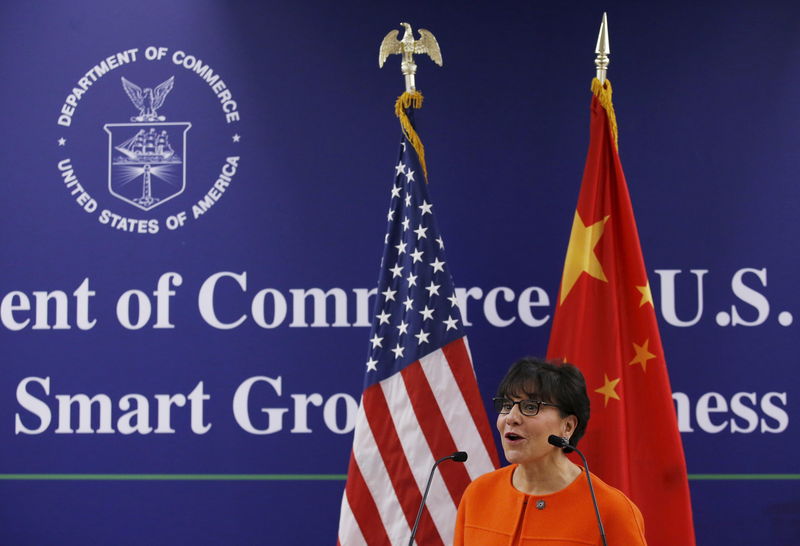By Michael Martina
BEIJING (Reuters) - Cybersecurity threats must be addressed without creating barriers to trade or investment, U.S. Secretary of Commerce Penny Pritzker said on Tuesday, during a visit to China as part of a trade delegation.
U.S. officials, including President Barack Obama, have raised concerns about cybersecurity regulations China is now considering that could limit opportunities for foreign technology companies, including a draft anti-terrorism law and so-called "secure and controllable" rules on banking technology.
"I have heard from numerous American CEOs that they are either avoiding the Chinese market or planning to reduce their exposure here, because they fear that the rules favour indigenous companies or that their intellectual property is at risk, or they worry that regulations will change unfairly," Pritzker said in a speech.
"These fears are real, and as a result it's a lose-lose situation."
China's new policies represent one of its most significant steps toward curbing foreign technology, 18 months after former National Security Agency contractor Edward Snowden disclosed that U.S. spy agencies planted code in American tech exports to snoop on overseas targets.
"All agree we must address our cyber security challenges without creating barriers to trade and investment, and that China will never become a strong innovation economy without an intellectual property protection regime that is enforced broadly and consistently," Pritzker said.
She told reporters she had discussed cybersecurity with Chinese leaders on Monday as well as the desire to continue the dialogue. "There seemed to be some receptivity to doing that," she added.
Chinese Foreign Ministry spokesman Hong Lei said on Tuesday China stood by its World Trade Organization commitments but guidelines to protect information security were necessary and the government was "amending and perfecting" them.
"Many other countries have also established relevant laws and regulations. We hope the relevant sides can understand and respect China's actions," he said.
A group of 31 business associations from the United States, Japan and Europe told Chinese officials on Monday in a letter they had "strong concerns" about the bank IT rules and urged Beijing to suspend them.
Business groups fear the regulations would favour domestic products or require that companies disclose to the government sensitive intellectual property, encryption keys or install "backdoors" in products.

Washington has said it is working with allies in Europe and Japan to tackle the Chinese barriers and has requested through the World Trade Organization that Beijing clarify the banking technology rules.